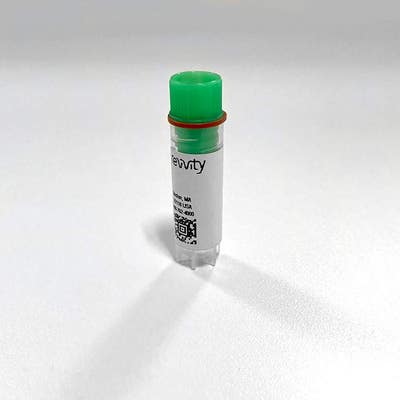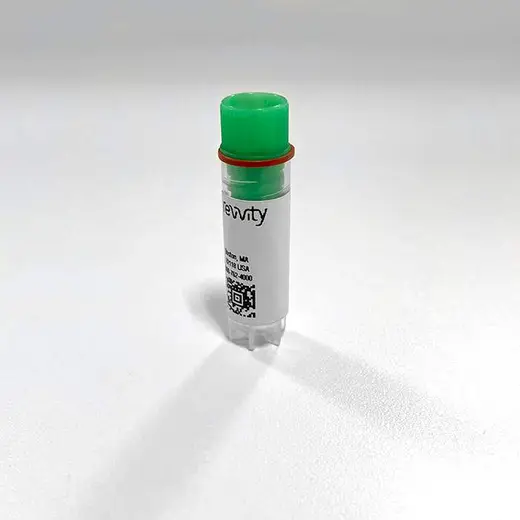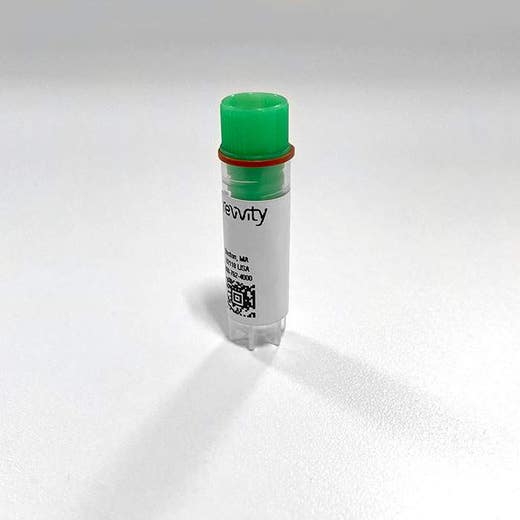
Membrane Target Systems: Melanocortin MC3 (human) membrane preparation

Membrane Target Systems: Melanocortin MC3 (human) membrane preparation




Cell membranes prepared from cells stably-transfected with human Melanocortin MC3 receptor, in HEK-293 cells.
Some of our receptors may be restricted for sale in specified countries. Please inquire. For research use only. Not for use in diagnostic procedures.
| Feature | Specification |
|---|---|
| µg protein/unit | 4.8 µg protein / unit |
| Concentration | 4.8 µg/µL protein |
| G-Alpha Natural Receptor | Gs |
| Host Cell Line | HEK293 |
| Host Species | Human |
| Receptor | Melanocortin |
| Target Class | GPCR |
| Validation | Binding |
| Volume | 400.0 µL |
Cell membranes prepared from cells stably-transfected with human Melanocortin MC3 receptor, in HEK-293 cells.
Some of our receptors may be restricted for sale in specified countries. Please inquire. For research use only. Not for use in diagnostic procedures.


Membrane Target Systems: Melanocortin MC3 (human) membrane preparation


Membrane Target Systems: Melanocortin MC3 (human) membrane preparation


Product information
Overview
Membrane Target Systems are quality assured frozen membranes from cells that express Melanocortin MC3 (human) recombinant or endogenous receptors.
We submit every batch of receptor to stringent quality control testing that includes saturation radioligand binding assay to determine receptor concentration (Bmax) and affinity (Kd). Competition binding assays are performed determine affinity (Ki) against known reference agonists and antagonists. GTPγS data is also provided for some of our Gi-coupled receptors.
Membranes are carefully prepared and ready for a variety of HTS applications, including radioligand binding (using either proximitymethods, such as FlashPlate, or classical filtration methods).
Products are packaged as frozen crude membrane preparations. One assay unit is defined as micrograms of protein, defined by competition binding assay (filtration). A complete product description and recommended protocol are included on the Product Information Sheet.
Some of our receptors may be restricted for sale in specified countries. Please inquire.
Specifications
| Concentration |
4.8 µg/µL protein
|
|---|---|
| Volume |
400.0 µL
|
| µg protein/unit |
4.8 µg protein / unit
|
| Application |
Drug Discovery & Development
|
|---|---|
| Brand |
Membrane Target Systems
|
| Buffer/Solvent |
50 mM Tris-HCL (pH 7.4), 0.5mM EDTA, 10mM MgCl2, 10% sucrose
|
| G-Alpha Natural Receptor |
Gs
|
| Host Cell Line |
HEK293
|
| Host Species |
Human
|
| Product Group |
Membrane Preparation
|
| Receptor |
Melanocortin
|
| Shipping Conditions |
Shipped in Dry Ice
|
| Target Class |
GPCR
|
| Therapeutic Area |
Inflammation
Metabolic
Pain
|
| Unit Size |
400 units
|
| Validation |
Binding
|
Resources
Are you looking for resources, click on the resource type to explore further.
G protein coupled-receptors (GPCRs) are one of the most intensively studied drug targets, with up to one-third of all marketed...
Discover a comprehensive collection of GPCR cell lines, membrane preparations, and complementary radioligands designed to drive...


How can we help you?
We are here to answer your questions.






























